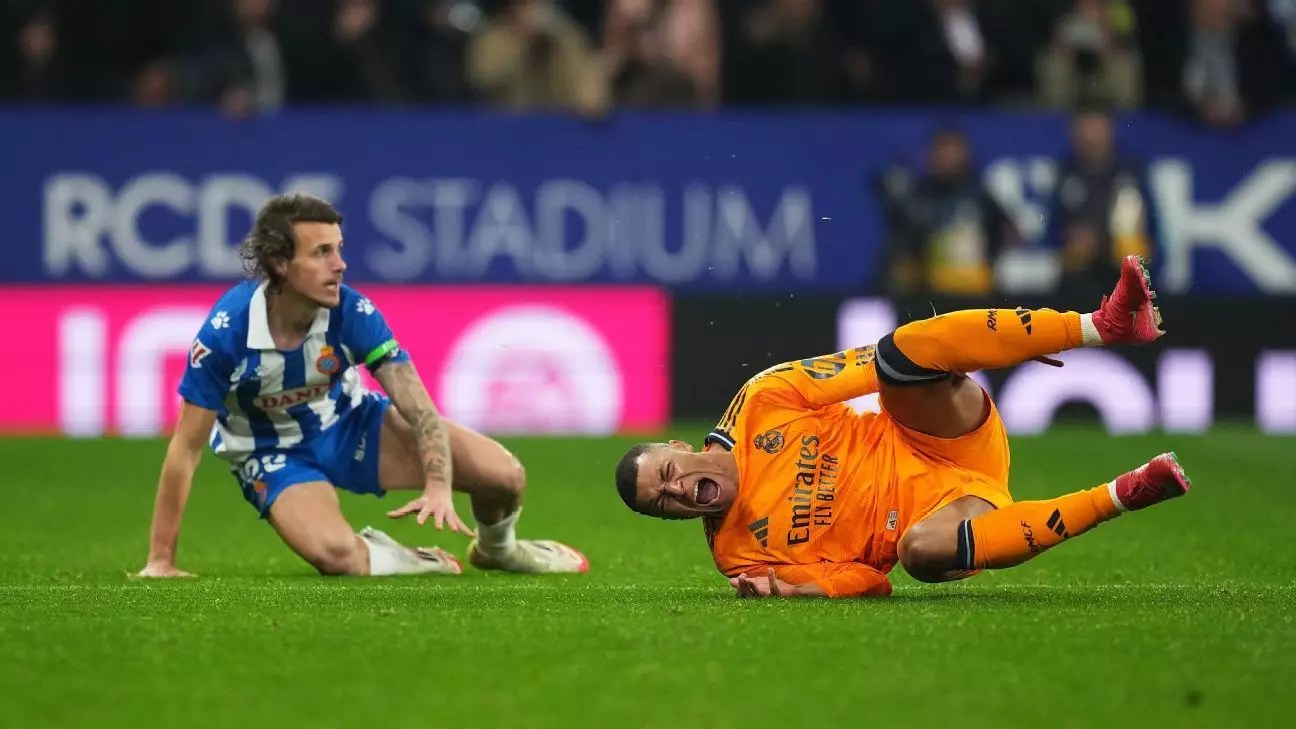The recent furor surrounding Real Madrid’s grievance with the refereeing standards in LaLiga has ignited a substantial debate within Spanish football. Following a controversial match against Espanyol on February 1, Madrid’s board issued a vehement open letter directed at the Spanish Football Federation (RFEF). This letter underscored their dissatisfaction with crucial refereeing decisions, particularly those made by referee Alejandro Muñiz Ruiz and VAR official Javier Iglesias Villanueva. The match’s pivotal moment arrived when Carlos Romero, guilty of a foul on Kylian Mbappé, avoided a red card. Soon after, Romero scored the only goal, while Madrid saw a valid goal from Vinícius Júnior disallowed.
The crux of Madrid’s argument rests on the assertion that the officiating was marred by gross errors that transcend the typical misunderstandings associated with human officiating. The four-page correspondence highlighted how the misjudgments and lack of accountability have turned the refereeing system into one that is “discredited” and flawed. The situation challenges the integrity at the heart of competitive sports, where decisions can influence the outcome of matches and, ultimately, the standings in the league.
LaLiga president Javier Tebas’s reaction to Madrid’s outcry adds another layer to this burgeoning narrative. He accused Madrid of indulging in what he terms a “victimhood narrative,” suggesting that the club’s leadership is exaggerating the circumstances to gain sympathy. Such comments not only reflect the tension between the league and its prominent clubs but also indicate a clear schism in how different stakeholders perceive the officiating issues.
In an unprecedented move, Tebas announced that LaLiga would file a complaint against Madrid for their public statements. The league’s defense of the refereeing body reveals a protective stance over the integrity of their operations, indicating that conflicts such as these do more than expose officiating flaws—they threaten the overall reputation of the league. This cyclical blame game places football authorities in a precarious position, where the trust in officiating is crucial to maintain the league’s credibility.
The ramifications of this dispute extend beyond this particular match; they may have long-term implications for the perception of officiating in LaLiga. In an age where technology such as VAR is meant to enhance the fairness of the game, such controversies can erode public trust in the system. Real Madrid’s demand for audio recordings between on-field and VAR officials reflects a call for greater transparency—an essential factor in preserving the sanctity of competitive sports.
As these tensions continue to brew, the resolution to such conflicts will play a pivotal role in shaping the future governance of refereeing standards in Spain. The ongoing discourse highlights a pressing need for reform, transparency, and perhaps a reevaluation of how officiating is managed at all tiers of football. Spanish football is at a crossroads; how it tackles these challenges will determine whether it can reclaim the confidence of its fans and clubs alike.


Leave a Reply